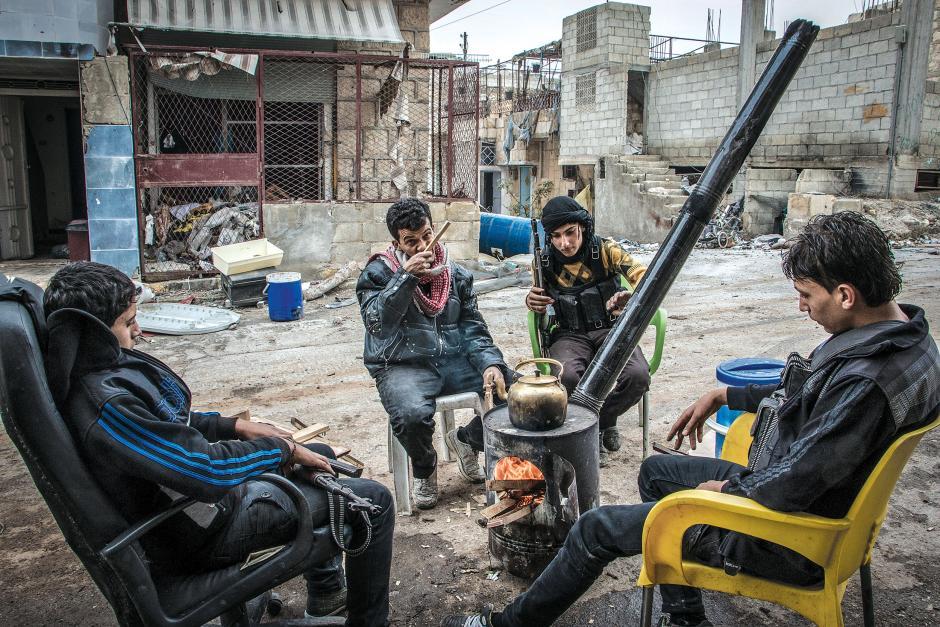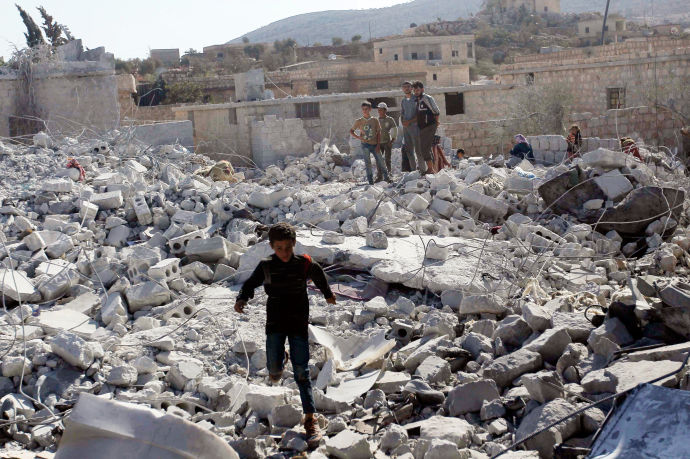
SYRIA'S AGONY
In a cover story for the international editions of Newsweek, Pulitzer Center grantee James Harkin returns to Syria and reports that while the Assad regime's stronghold in Damascus looks more impregnable than ever, elsewhere in the country the Syrian army's myth of invincibility has been shattered.
"Its control over its territory is shrinking all the time, and nowhere more so than in northern Syria. To the east of Aleppo, it lost Raqqa province to ISIS, which also rules over several cities and towns dotted around the area. And to the west of Aleppo, there's Idlib, most of which is under the control of a coalition of rebel militias led by the Nusra Front, an Al-Qaeda affiliate," writes James.
"Regime-held Aleppo finds itself almost entirely encircled, and it's being squeezed as never before," he says. "If this, the country's biggest city and its industrial powerhouse, were to fall, the Syrian Arab Republic would be reduced to a rump."
James spent time with ordinary citizens in Aleppo, where survival is a day-to-day proposition and most people have no love for either side in the struggle. As one man told James, "You could describe Aleppo as largely neutral, having seen the worst of both rebel and regime atrocities."
THE GANGS OF KARACHI
For a truly remarkable piece of reporting featured in the current issue of Harper's, Pulitzer Center grantee Matthieu Aikins traveled to the slums of Karachi where he dissected the connection between Pakistan's politics and the criminal economy that thrives in the megacity of almost 20 million on the edge of the Arabian Sea.
More than two years in the making, Matt's story captures the career arc of Uzair Baloch, a man who went from being Karachi's most notorious gangster, to a rising political star, and now a hunted fugitive.
As Matt explains, Karachi is a violent place with one of the world's highest murder counts, but its violence belies a highly complex and informal political order that, unsurprisingly, benefits the city's elite classes. "I hope that by telling the story of Uzair Baloch and his slum fiefdom of Lyari, I'll give you a sense of this vibrantly chaotic city and its resilient inhabitants."
A TRAGIC FATE IN MEXICO
While working on a project about the use of new information and communication technologies in Mexico's fight against corruption, Pulitzer Center student fellow Kara Andrade interviewed Miguel Angel Jiménez, a community organizer in Guerrero state who was an early leader in the search for the 43 students who disappeared nearly a year ago.
"In my town, I am pursued. They have tried to kill me several times," Jiménez told Kara in June as she drove with him along the narrow back roads of San Marcos, Guerrero. "All social activists meet a similar end, so there's no way to avoid it. Go to jail for life, or be killed. Two fates."
Earlier this month, Jiménez's bullet-riddled corpse was found along the road near the entrance to his hometown of Xaltianguis. "Jiménez knew, more than anyone, that he was living on borrowed time," Kara writes in this dispatch for Huffington Post. "Though it seems unlikely that whoever killed Jiménez will be brought to justice, people across Mexico marched with banners of his face and the words "No has muerto camarada," or "You have not died, friend."
Until next week,
Tom Hundley
Senior Editor






